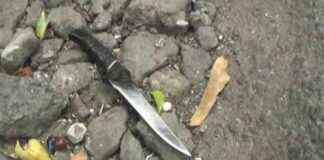Corporate Negligence Leads to Ecosystem Destruction in Pari Island Cluster
The pristine marine ecosystem of Pari Island has been ravaged by the controversial Permit for Utilization of Marine Space (PKKPRL). Issued by the Ministry of Maritime Affairs and Fisheries and the Ministry of Investment/Investment Coordinating Board (BKPM), this permit has triggered irreparable damage to the environment of Pari Island in the Thousand Islands, yet corporate entities remain untouched by sanctions.
Local Activist Voices Concerns
Asmania, a prominent figure from the Women Fishermen’s Group of Pari Island, spoke out against the ongoing ecological destruction in the Pari Island Cluster. She highlighted the expansion of land on Tengah Island through reclamation, the extraction of sea sand, the development of Biawak Island, and proposed construction projects like floating resorts and piers in Lempeng Bay.
Community Struggles and Environmental Impacts
Residents of Pari Island are facing a relentless battle against land encroachment, resulting in failed fishpond harvests, unproductive seaweed growth, dwindling fish catches, and restricted access to the sea due to corporate restrictions. Even the construction of a sea bridge on Biawak Island has disrupted the livelihoods of local fishermen.
Government Inaction and Community Frustration
Despite complaints from the Pari Island community and efforts by the Pari Island Care Forum to engage with the Ministry of Maritime Affairs and Fisheries (KKP), there has been a lack of response or action. The negligence displayed by government agencies in addressing the concerns raised by residents has fueled frustration and disillusionment among the islanders.
Expert Analysis and Satellite Data
A study conducted by the People’s Coalition for Fisheries Justice (Kiara) and the Participatory Mapping Network (JKPP) using Sentinel 2A & 2B satellite imagery revealed a significant increase in Biawak Island’s land area by approximately 0.9 hectares from 2016 to 2024. This expansion correlated with a degradation of mangrove forests by around 0.21 hectares on the same island.
Government Oversight and Selective Enforcement
Recent visits by representatives of the Ministry of Maritime Affairs and Fisheries and the Ministry of Environment to the Pari Island Cluster have raised concerns about biased enforcement and a lack of comprehensive action against corporations engaged in unauthorized activities. The focus on specific violations while ignoring widespread environmental degradation has sparked criticism from advocacy groups like Kiara and FP3.
In conclusion, the plight of Pari Island serves as a stark reminder of the urgent need for stricter regulations, robust enforcement mechanisms, and genuine accountability in safeguarding our precious marine ecosystems. Failure to address corporate negligence and government inaction may result in irreversible damage to our natural heritage, impacting not only current generations but also future ones. The time to act is now before it’s too late. #pulaupari #kerusakan #ekosistem #laut #sanksi














